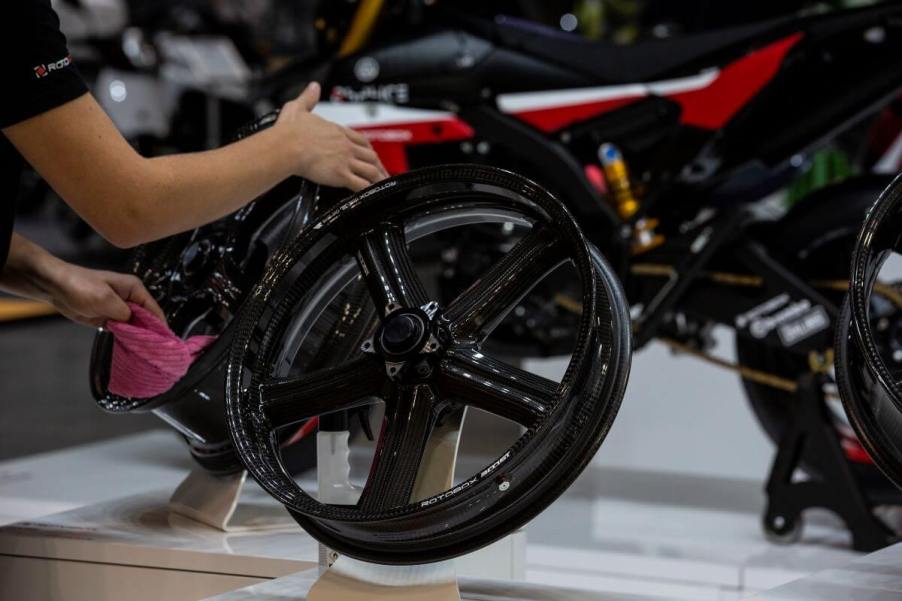
Are Carbon Fiber Car Wheels Worth the Added Cost?
Most modern cars ride on either aluminum alloy or steel wheels, but several models now offer carbon fiber options, or they can be retrofitted to vehicles. Due to the high cost of carbon fiber, wheels and other accessories made with the material are still a rarity and are usually only applied on exotic cars, racing machines, or cars owned by those with deep pockets. So, what are the advantages of carbon fiber wheels, and are they worth the significant increase in price over aluminum alloy or steel wheels?
Advantages of carbon fiber car wheels
According to Carbon Revolution, which manufactures one-piece carbon fiber wheels for Ferrari, General Motors, Jaguar Land Rover, and Ford, the material has several distinct advantages over aluminum alloy or steel options.
Perhaps the most notable distinction of carbon fiber wheels is their weight savings over traditional wheel materials. Carbon Revolution states its wheels are up to 40-50 % lighter than aluminum wheels. This is particularly notable as wheels have grown consistently over the last few decades. Thus, they add more weight to the vehicle overall in the pursuit of performance and style.
Lightweight construction is particularly vital in performance cars, which already put an emphasis on weight-saving. The lightweight material improves acceleration, braking, and handling by reducing rotational inertia and unsprung mass. The latter reduces the amount of dampening work by the suspension over bumps, thus improving traction.
Reducing wheel weight can also improve fuel efficiency and the range of all-electric vehicles. Carbon fiber wheels can also be crafted with aerodynamic designs to further improve a car’s efficiency. Lastly, due to its robust construction, carbon fiber also offers greater durability and can reduce NVH (noise, vibration, and harshness).
The disadvantages of carbon fiber wheels
Carbon fiber wheels have plenty of appealing characteristics, but there are good reasons they have not become more mainstream, according to ClickItWheels.
For starters, carbon fiber is an extremely expensive proposition. For instance, the 2024 Chevy Corvette Z06 can be had with carbon fiber wheels from CR, but its price tag of $12,000 is no easy pill to swallow, even for those willing to spend six figures on the American supercar.
These types of wheels will require a lot more dough to be spent should they suffer from damage. Aluminum alloy and steel wheels with minor damage can be repaired with relative ease. However, carbon fiber wheels with more-than-superficial damage will often have to be replaced outright. And again, that’s no cheap proposition.
Is the pricy accessory worth it for most cars?
Carbon fiber wheels might offer many positive characteristics, but they aren’t a legitimate alternative to steel or aluminum alloy in most applications. They are simply too expensive to justify their costs on any car that isn’t manufactured solely with the intention of carving up racetrack corners and eking out every bit of a car’s performance.
That is why carbon fiber wheels, at least for now, are limited to racing cars, ultra-performance cars, exotics, and, to a lesser extent, show cars. Other than their use on these cars, they aren’t worth the cost.
Of course, carbon fiber material has become radically less expensive over time. We still aren’t at a point where carbon fiber wheels are a reasonably priced alternative to aluminum alloys. Still, if the material’s price continues its downward trend and production methods continue to become more mass market, that could change in due time.




